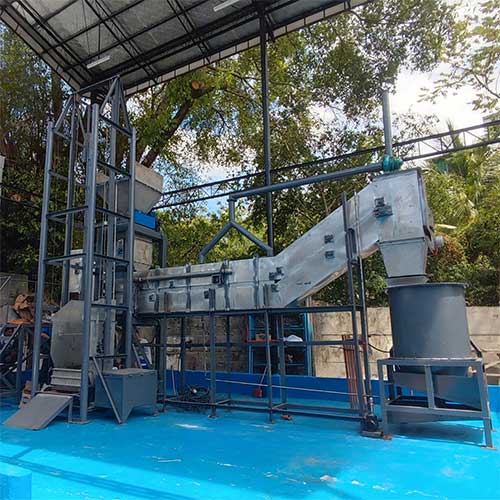
Scientists from the University of the Philippines Visayas (UPV) have developed a groundbreaking waste disposal technology for hospitals called Oil-Based Thermal Disinfection (OBTD), the first of its kind in the world.
The OBTD Technology was created to treat infectious and pathological waste from healthcare facilities, addressing the lack of treatment systems in many parts of the Philippines, particularly in Western Visayas.
The project was funded by the Department of Science and Technology and led to the formation of FILARB Waste Management Services, a UPV spin-off company officially registered in September 2023.
FILARB was founded by Dr. Ramer Bautista, a faculty member of the UPV School of Technology, and now serves as the commercialization arm of the OBTD initiative.
The Medical City Iloilo (TMCI) is the first healthcare institution to use the OBTD system, partnering with FILARB and UPV to pioneer this innovative waste management approach.
“This simple method has become the basis of the commercial-scale equipment installed at TMCI, whose leadership believes in this innovation and is willing to be a partner in pioneering a new technology,” UPV said in a statement.
Unlike most non-burn disinfection methods that use 121°C, the OBTD process uses coconut or vegetable oil to reach temperatures of 170°C to 200°C at atmospheric pressure.
This approach ensures better disinfection in less time and avoids the need for high-pressure, gas-tight systems typically found in hospital waste treatment technologies.
“This technology is designed to simplify operations while achieving a higher level of disinfection, using locally available materials like coconut oil as a heating medium,” said Dr. Bautista.
In addition to OBTD, the FILARB research team is working on related projects such as biodiesel production from used cooking oil, biogas generation from food waste, and developing bamboo briquettes and pyrolysis technologies.
The team is also exploring the use of waste from engineered bamboo production and developing drying and other waste utilization systems.
FILARB, TMCI, and UPV aim to scale the technology for use in other hospitals across Western Visayas and other underserved regions in the country.
They envision OBTD as a viable, cost-efficient, and sustainable solution to the growing problem of healthcare waste in the Philippines.
“This innovation could change how hospitals manage their waste, especially in areas without access to treatment facilities,” said one TMCI executive who supports the rollout of the new technology.
With the increasing volume of medical waste in the wake of health crises and ongoing hospital operations, UPV and its partners believe OBTD offers a timely and practical solution for the health sector and local governments.
FILARB’s mission includes not just the treatment of waste, but also sustainable practices that align with environmental and public health goals.
As Western Visayas becomes the launchpad for the world’s first OBTD system, local stakeholders hope to lead the Philippines in hospital waste management innovation. (UPV-IPO, with sources from FILARB)


















